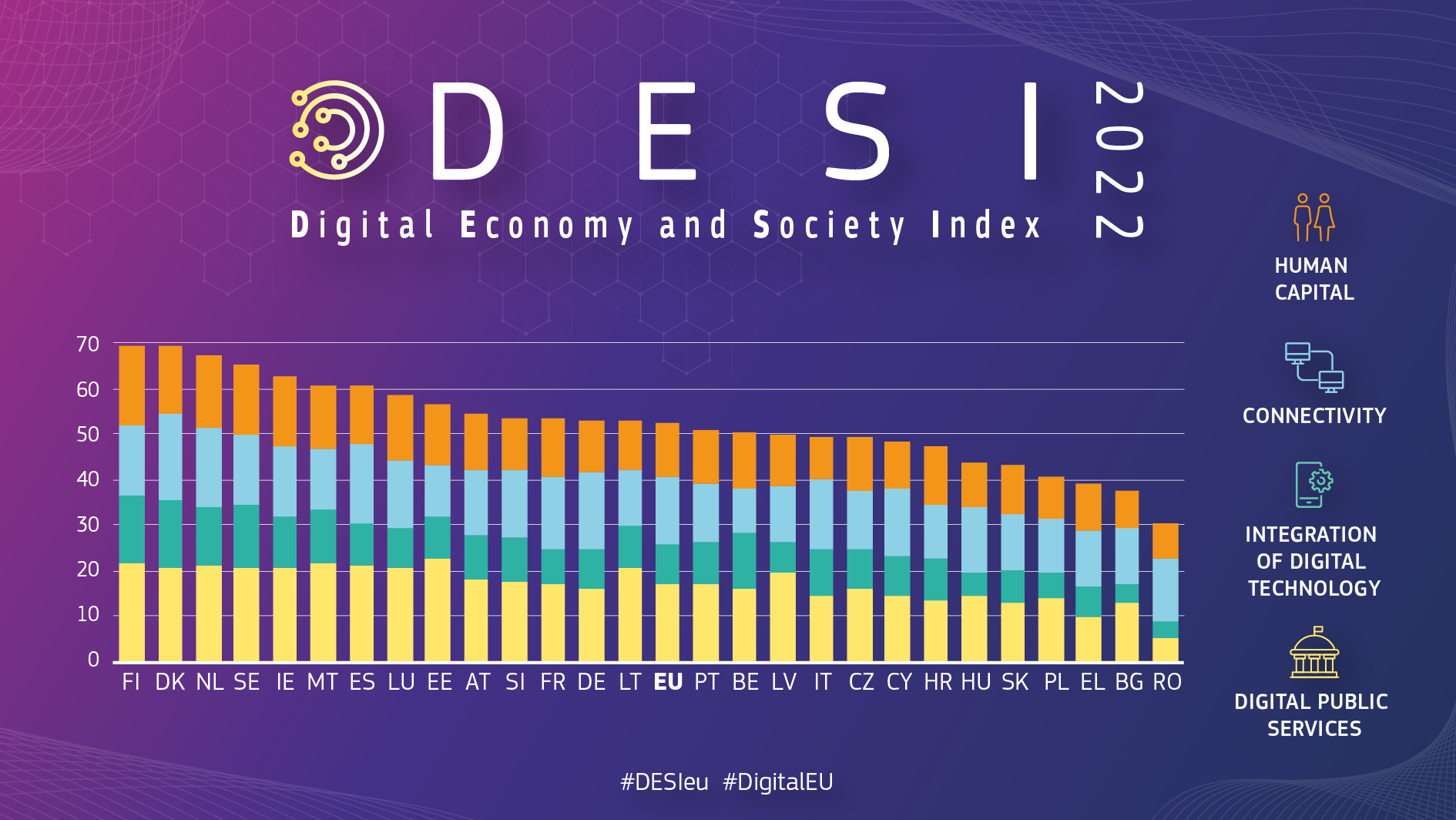The Digital Economy and Society Index (DESI) summarises Europe’s digital performance indicators and tracks the progress of EU countries.
The European Commission has been monitoring Member States’ digital progress through the Digital Economy and Society Index (DESI) reports since 2014. Each year, DESI includes national profiles that support Member States in identifying areas requiring priority action, as well as thematic chapters that offer a Europe-wide analysis of key digital areas, which are essential to support policy decisions.
The 2022 DESI reports are mainly based on 2021 data and track the progress made in the EU Member States in the digital area. During the COVID-19 pandemic, Member States have made progress in their digitalisation efforts, but continue to struggle to close the gaps in digital skills, the digital transformation of SMEs and the roll-out of advanced 5G networks.
The EU has put significant resources on the table to support the digital transformation. EUR 127 billion is earmarked for digital reforms and investments linked to the national recovery and resilience plans. This is an unprecedented opportunity to accelerate digitalisation, increase the Union’s resilience and reduce external dependencies with reforms and investments. Member States devoted on average 26 % their Recovery and Resilience Facility (RRF) allocation to the digital transformation, above the mandatory threshold of 20 %. Member States that have chosen to invest more than 30 % of their RES allocation for digital are Austria, Germany, Luxembourg, Ireland and Lithuania.
See the 2022 Digital Economy and Society Index (DESI) for Italy.




